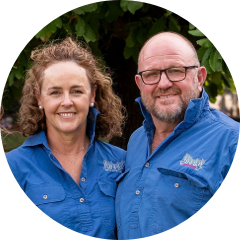Using mosaic farming systems to better match land use to land capability
This project was completed in 2005.
WHY THIS PROJECT WAS NEEDED
Mosaic farming is a system of land use combining patches of annual cropping interspersed with perennial vegetation. Land use is better matched with land capability using technologies (eg yield mapping, EM surveys, bio-economic modelling) that identify spatial and temporal variability across paddocks, farms and sub-catchments.
Areas of land can then be zoned for annual cropping or perennial vegetation in a way that minimises the economic effect on individual farmers but maximises the environmental benefit to the area.
The benefits are expected to be more appropriate use of land/land-use sustainability, more appropriate allocation of resources/inputs (less nutrient runoff, less wastage, less leaching of nutrients, less nutrient build-up in the soil), reduced erosion and soil loss, improved yields/productivity, improved soil condition and increased production, increased perenniality of annual systems.
In short: This project investigated the implementation of mosaic farming techniques on farm, building on existing knowledge and farmer interest in zonal management.
Project focus
The objective of this project was to investigate the potential to implement aspects of mosaic farming in commercial situations.
The mosaic farming project was implemented on the back of information and knowledge that already exists on the project paddocks that were investigated as part of the zonal management project in the Yarrawonga area. The project combined a detailed examination of the within field variation in production capability and an investigation into the use of remote sensing tools to gauge variability in the broader landscape.
A focus group of interested farmers was established to aid the extension of findings. Some of these farmers were already undertaking some basic steps in zonal management, so there is a high level of interest in the area within this group.
Find out more
For further information. please email info@riverineplains.org.au
Project investment
MORE ON Soils & Grains
Our research enhances food production, increases environmental resilience and improves community connection across the Riverine Plains. See how our research creates impact.
-
Grains
Sustainability
-
Grains
Business
-
Grains
Sustainability
-
Grains
Livestock
-
Grains
Livestock
-
Soils
Sustainability
-
Soils
Sustainability
-
Grains
Sustainability
-
Grains
Business
-
Grains
Sustainability
-
Grains
-
Grains
-
Soils
Grains
-
Soils
Sustainability
-
Grains
Soils
-
Drought
Grains
-
Soils
Grains
-
Grains
-
Grains
Soils
-
Soils
Grains
-
Fodder
Grains
-
Grains
-
Soils
Sustainability
-
Grains
-
Soils
Sustainability
-
Grains
Soils
-
Sustainability
Grains
-
Grains
Sustainability
-
Soils
Grains
-
Soils
Climate
-
Grains
Sustainability
-
Soils
Climate
-
Livestock
Grains
-
Grains
Soils
-
Sustainability
Grains
JOIN RIVERINE PLAINS
Riverine Plains provides opportunities to see new research and innovation, connect with rural communities, and attend informative events.


